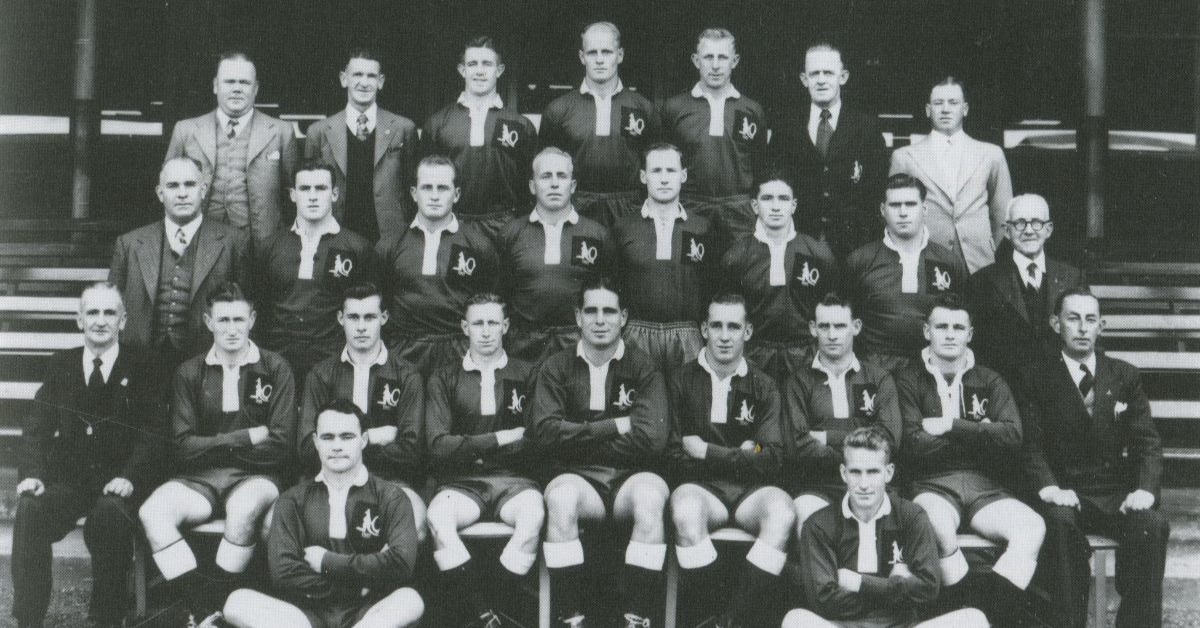Queensland Rugby League Team, 1951
Qld vs NSW Game 1, 1951 – Bernie Drew rises to the occasion.
The state of the game of rugby league in Queensland the late 1940s was at a critical juncture. Since the end of World War II, Queensland had won only two games overall in the interstate series. In 1949, the QRL formed a special committee to find ways to improve the State’s playing standard.
Things were not helped by the chairman of the Australian Board of Rugby League, Harry Flegg, openly attacking Queensland over its lack of success. Queensland did receive a feather in its cap by defeating the Great Britain touring side in 1950 – but there was still the issue of beating the southerners.
The first game between Queensland vs NSW in 1951 did not look promising for Queensland. Apart from the fact they were playing in Sydney, Queensland had not won the opening match of a series since 1932. In addition, Fred Gilbert was only in his second year of coaching the side.
However, Queensland were able to win the game against the odds through sheer determination and courage, in a way some spectators believed was reminiscent of the First Battle of Brisbane in 1932.
By the second half, the Queensland team looked like it had been through a war. Mick Crocker was on the end of a stiff-arm tackle that left him with a swollen jaw and injured back, but he never stopped in attack or defence. Although badly injuring his shoulder, Rex McGlynn had it strapped and gamely tackled with one arm.
Brian Davies had torn back muscles and sometimes had to be helped back to his feet, but stayed on until the end, scoring the last try of the match. On top of all this, Queensland lost Duncan Hall a short time after the second half commenced.
With all the carnage in the Queensland team, especially in the forwards, Queensland was in real danger of wilting. Up stepped the hero of the hour, forward Bernie Drew.
Bernie had played for Newtown in the Sydney competition as a junior and then moved to Bundaberg Brothers in 1951. In 1952 he started playing for Ipswich Railways and became captain of the Ipswich Bulimba Cup team. He would play a total of 20 matches for Queensland and three Tests.
Despite the fact that he was playing in his first game for Queensland, Bernie handled the situation like a veteran. He took the initiative to get a lot of the hard yards up the middle, and his powerful running was important because it helped to relieve the pressure on Queensland’s defensive line. The heroic commitment shown by Bernie and his Maroon teammates is reflected in the final score of 29-18.
After losing the second game, Queensland won the third game to clinch the series, with Bernie scoring two tries. Bernie’s great contribution was acknowledged by the selectors when he was picked to play in his first two Tests for Australia against France the same year.
